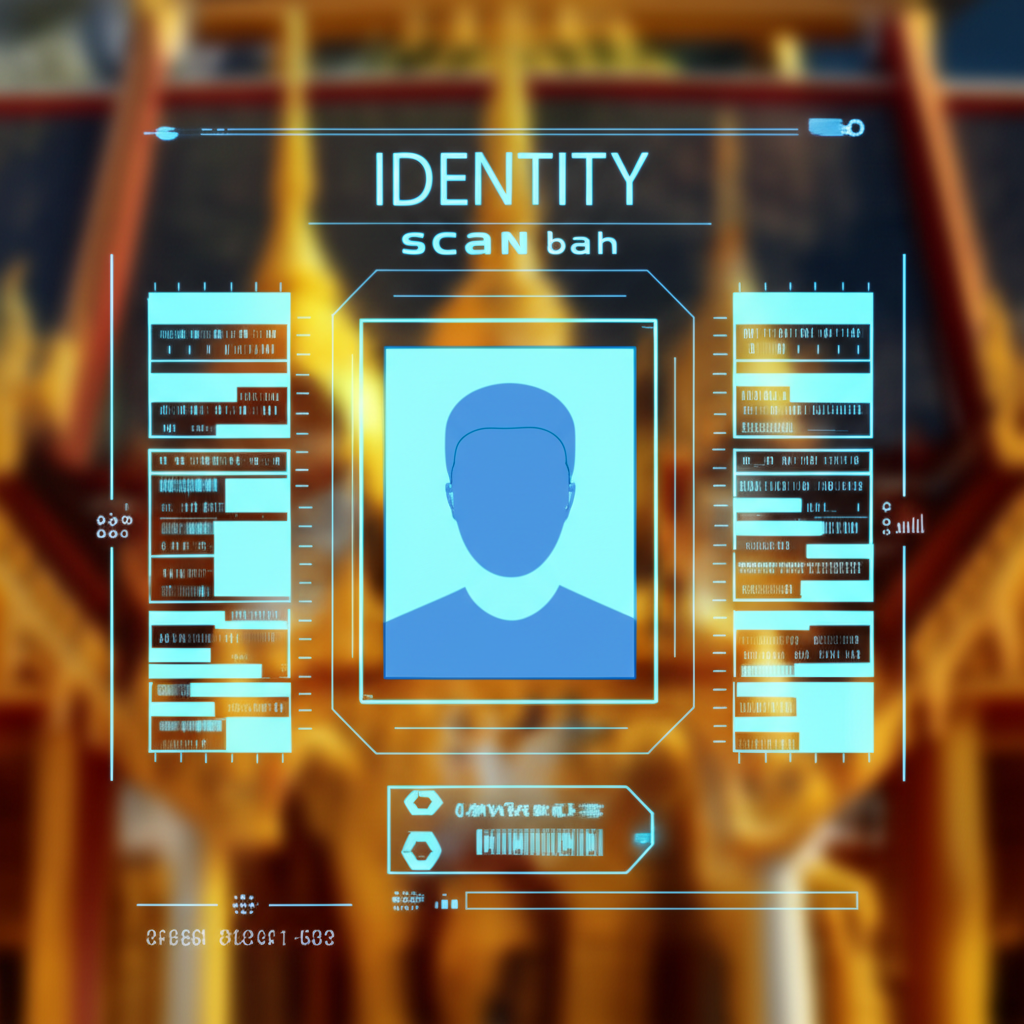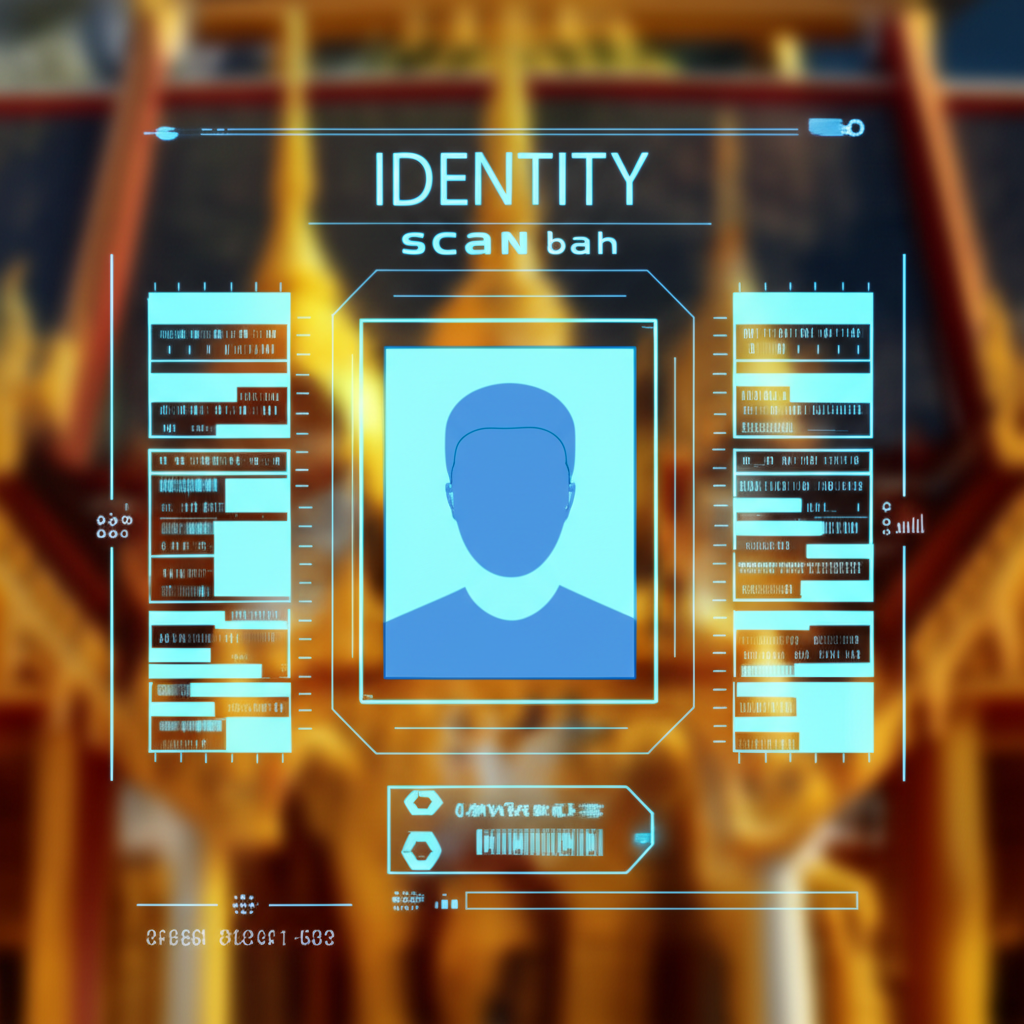Understanding Forex Trading in Thailand for US Citizens in 2025
Thailand’s dynamic economy and growing digital infrastructure have increasingly attracted international investors, including US citizens seeking diversified trading opportunities. Among these, Forex trading stands out as a popular choice due to its accessibility and potential returns. However, entering the foreign exchange market from within Thailand requires a clear understanding of legal boundaries, compliance procedures, and regulatory expectations—especially for American traders navigating dual jurisdictional responsibilities.

As we approach 2025, the landscape for cross-border financial activities continues to shift, shaped by tighter global anti-money laundering standards and evolving digital finance frameworks. For US nationals residing in Thailand, engaging in Forex trading isn’t simply about choosing a platform—it’s about ensuring every step, from account registration to fund withdrawal, aligns with both Thai capital controls and US regulatory mandates. This guide offers a comprehensive breakdown of what US traders need to know: the legal status of Forex in Thailand, the critical role of identity verification, top brokers that support American clients, and key tax considerations.
Is Forex Trading Legal in Thailand? The Regulatory Landscape for 2025
The legal environment for Forex trading in Thailand remains restrictive, particularly when it comes to local participation. The Bank of Thailand (BOT) maintains tight oversight over foreign exchange transactions to preserve monetary stability and prevent capital flight. As of 2024, retail Forex trading through unlicensed domestic brokers is effectively banned, and only authorized financial institutions can legally conduct foreign currency exchanges.

The two main regulatory bodies involved are the **Bank of Thailand (BOT)** and the **Securities and Exchange Commission (SEC)**. The BOT governs all aspects of foreign exchange policy and oversees commercial banks’ foreign currency operations. While the SEC regulates investment products and securities markets, its authority over retail Forex trading is limited, particularly concerning offshore brokers serving foreign clients.
For US citizens, this means direct involvement with local Thai Forex platforms is not only risky but likely non-compliant. Instead, the most viable path is through internationally regulated brokers that accept clients from Thailand. These platforms operate under strict oversight in their home jurisdictions and provide a legal and secure channel for US traders to engage in Forex activities without violating Thai law.
What to Expect in 2025: A complete deregulation of Forex trading in Thailand is improbable. However, increased scrutiny of cross-border fund flows is expected, driven by global efforts to combat money laundering and terrorist financing. The Bank of Thailand may issue more detailed guidelines on digital financial services, potentially affecting how traders deposit and withdraw funds. As a result, adherence to KYC and AML protocols will become even more critical. Engaging with unregulated brokers poses serious risks, including exposure to fraud, lack of transparency, and no legal recourse in case of disputes.
Key Considerations for US Citizens Trading Forex in Thailand
US citizens, classified as “US Persons” under financial regulations, face unique challenges when trading internationally. These stem from stringent domestic oversight and global compliance requirements that follow them regardless of location.
- FATCA Compliance: The Foreign Account Tax Compliance Act (FATCA) mandates that foreign financial institutions report accounts held by US persons to the IRS. Reputable brokers will require proof of citizenship and may automatically report your trading activity if thresholds are met.
- CFTC and NFA Restrictions: The Commodity Futures Trading Commission (CFTC) and National Futures Association (NFA) impose strict rules on leverage, capital requirements, and trading practices. Due to the high compliance burden, many international brokers do not accept US clients. This means US traders in Thailand must seek platforms that either accommodate US persons under compliant structures or offer services through offshore entities.
- Fund Transfers and Capital Controls: Thailand regulates large inflows and outflows of foreign currency. While personal trading accounts are generally not targeted, consistent or high-volume transactions may attract attention. It’s essential to use formal banking channels and maintain clear records of fund sources.
- Tax Implications: US citizens are taxed on worldwide income, meaning Forex profits must be reported to the IRS. Depending on residency status, Thai tax obligations may also apply if profits are remitted to the country. This dual liability makes professional tax advice indispensable.
Choosing a broker regulated by a major authority and experienced in handling US clients is essential. It ensures access to secure trading environments and helps manage the complex interplay between international finance and domestic compliance.
KYC & Identity Verification: Navigating Account Opening with Thai Forex Brokers in 2025
Know Your Customer (KYC) and Anti-Money Laundering (AML) procedures are fundamental to legitimate Forex trading worldwide. These processes protect both financial institutions and traders by verifying identities and preventing illicit activities. For US citizens based in Thailand, understanding and preparing for KYC is the first step toward a smooth onboarding experience.
In 2025, identity verification is becoming faster and more sophisticated. While traditional document submission remains standard, many brokers now integrate AI-powered tools, biometric checks, and real-time video verification to enhance security and speed. Brokers like **Moneta Markets** have optimized their verification systems to support international clients, offering multilingual assistance and rapid processing through advanced platforms.
Common Documents Required for Verification
To complete the KYC process, traders typically need to submit the following:
- Proof of Identity:
- Valid passport (strongly recommended for international clients)
- National ID card or US driver’s license
- Any government-issued photo ID with name, date of birth, and expiration date
- Proof of Residence:
- Utility bill (electricity, water, internet) issued within the last 3–6 months
- Bank or credit card statement from a Thai or international bank
- Rental agreement or official government correspondence with your Thai address
All documents must be clear, unexpired, and match the information provided during registration. Discrepancies in name spelling, address, or date of birth can delay approval significantly.
| Document Type | Examples | Key Requirements |
|---|---|---|
| Proof of Identity | Passport, National ID, Driver’s License | Photo, Full Name, Date of Birth, Expiration Date |
| Proof of Residence | Utility Bill, Bank Statement, Rental Agreement | Full Name, Residential Address, Issued within 3–6 months |
Streamlining the Verification Process: Tips for US Traders
Minimize delays with these practical steps:
- Prepare High-Quality Scans: Have clear, legible digital copies ready before starting. If documents are in Thai, provide certified English translations.
- Ensure Consistency: Use the exact name and address across all forms and documents. Even minor mismatches can trigger manual review.
- Choose a Tech-Forward Broker: Platforms using identity verification systems like Sumsub or Onfido often process applications faster. **Moneta Markets**, for example, leverages such technology to achieve verification within hours to one business day.
- Address Expatriate Challenges: If you’ve recently moved to Thailand, a local utility bill may not be available. Some brokers accept international bank statements or official letters with your Thai address—confirm this with customer support.
- Respond Promptly: If additional information is requested, reply immediately to keep the process moving.
Top Forex Brokers for US Citizens Trading in Thailand (2025 Review)
Selecting the right broker is crucial for US traders in Thailand. The ideal platform should offer strong regulation, reliable execution, responsive support, and a seamless KYC process. It must also be willing to serve US clients without compromising compliance.
Moneta Markets: A Top Choice for US Traders in Thailand
**Moneta Markets** has emerged as a leading option for American traders operating from Thailand, combining regulatory strength, technological efficiency, and trader-focused services.
- Prestigious Regulatory Oversight: Moneta Markets is regulated by the UK’s Financial Conduct Authority (FCA), one of the most stringent and respected financial regulators globally. This ensures high standards of client protection, transparent operations, and segregated fund handling. The broker also maintains additional oversight in other jurisdictions, reinforcing its international credibility.
- Smooth and International-Friendly KYC: Designed for a global client base, Moneta Markets has refined its verification process to handle complex residency situations. The use of AI-driven identity checks and multilingual support enables fast and hassle-free onboarding, even for US citizens with non-local address proofs.
- Competitive Trading Conditions: The broker offers tight spreads starting from 0.0 pips on its ECN accounts, low commission rates, and fast execution speeds. These conditions are ideal for scalpers, day traders, and algorithmic strategies.
- Advanced Platform Options: Traders can access MetaTrader 4 (MT4), MetaTrader 5 (MT5), and Moneta’s proprietary WebTrader and AppTrader platforms. These offer powerful charting tools, automated trading capabilities, and mobile accessibility.
- Responsive Customer Support: With 24/5 assistance in multiple languages, Moneta Markets ensures traders can get help when needed, regardless of time zone differences.
- Flexible Deposit and Withdrawal Methods: The broker supports bank transfers, credit/debit cards, and popular e-wallets, making fund management convenient for international users.
Other Reputable Brokers Serving Thailand (with US Trader Considerations)
While Moneta Markets offers a standout combination of features, other brokers may also serve US traders, though with varying degrees of accessibility.
- FXCM: Regulated by the FCA and ASIC, FXCM is known for its advanced trading tools and educational content. However, its ability to accept US citizens residing abroad varies and must be confirmed on a case-by-case basis due to CFTC restrictions.
- InstaForex: This broker operates under the Financial Services Commission (FSC) of St. Vincent and the Grenadines. It accepts international clients and offers high leverage, but lacks oversight from top-tier regulators. US traders should proceed with caution and verify compliance policies directly.
- Pepperstone: Regulated by ASIC and the FCA, Pepperstone delivers strong execution and low spreads. While it primarily serves non-US clients, its policy on US persons living overseas may allow access under certain conditions—direct inquiry is recommended.
| Broker Name | Primary Regulation | Trading Platforms | Minimum Deposit | KYC Speed (Est.) | Accepts US Citizens (Residing in TH) | Unique Selling Points |
|---|---|---|---|---|---|---|
| Moneta Markets | FCA | MT4, MT5, WebTrader | $50 | 1–2 business days | Yes (with compliance) | Strong FCA regulation, efficient KYC, competitive spreads, multi-language support |
| FXCM | FCA, ASIC (Varies) | MT4, Trading Station | $50 | 2–3 business days | Limited / Case-by-case | Advanced tools, extensive education, strong execution |
| InstaForex | FSC (St. Vincent) | MT4, MT5 | $1 | 2–5 business days | Yes (verify US compliance) | High leverage, wide instrument range, low entry barrier |
Note: Acceptance of US citizens residing abroad depends on the broker’s internal compliance policies and evolving regulatory conditions. Always verify eligibility directly with the broker before opening an account.
Forex Trading Tax Implications for Foreigners in Thailand (2025 Outlook)
Taxation is one of the most complex aspects of international Forex trading, especially for US citizens who face obligations in both countries.
Thai Tax Obligations
Thailand generally taxes income earned within the country. If you are a non-resident, foreign-sourced income—such as Forex profits generated through an offshore broker—is not taxable unless remitted to Thailand in the same year it was earned. However, if you qualify as a tax resident (staying in Thailand for 180 days or more in a calendar year) and bring those funds into the country, they may become subject to Thai personal income tax, which is progressive and ranges from 5% to 35%.
For official guidance, refer to the Thai Revenue Department website.
US Tax Obligations
US citizens are subject to global income taxation. All Forex trading profits, regardless of location, must be reported to the IRS.
- Reporting: Gains and losses are typically reported on Form 8949 and Schedule D, depending on whether the activity is classified as investment or business income.
- Foreign Earned Income Exclusion (FEIE): While FEIE allows eligible expats to exclude up to a certain amount of foreign-earned income, Forex trading profits are usually considered passive income and do not qualify.
- Foreign Tax Credit: If you pay Thai income tax on your Forex earnings, you may claim a foreign tax credit on your US return to avoid double taxation.
2025 Outlook
No major overhauls in US taxation policy are expected by 2025, but minor adjustments to reporting thresholds or digital asset tax rules could emerge. Thailand may also refine its treatment of foreign income, particularly as digital nomadism grows. Staying informed through official channels and consulting a tax professional is essential.
Recommendation
Given the complexity of dual tax systems, it’s strongly advised to work with a tax advisor experienced in US expatriate taxation and international finance. They can help you structure your trading activities efficiently and remain compliant.
Conclusion: Empowering Your Forex Journey in Thailand for 2025 and Beyond
Forex trading as a US citizen in Thailand is entirely feasible—but only when approached with careful planning and regulatory awareness. While direct participation in the local Forex market is restricted, the global nature of online trading opens viable pathways through internationally regulated brokers.
The key to success lies in selecting a platform with strong oversight, such as **Moneta Markets**, which operates under FCA regulation and offers a streamlined, secure, and trader-friendly experience. Its efficient KYC process, competitive pricing, and multilingual support make it particularly well-suited for American expats navigating the Thai financial environment.
As we move into 2025, expect continued emphasis on transparency, identity verification, and cross-border compliance. By staying informed, choosing reputable partners, and seeking expert advice on legal and tax matters, US traders can confidently engage in Forex trading from Thailand while minimizing risk and maximizing opportunity.
Frequently Asked Questions (FAQs)
1. Is Forex trading legal in Thailand for foreigners, specifically US citizens?
Direct retail Forex trading with non-licensed entities within Thailand is generally prohibited by the Bank of Thailand. However, US citizens can legally trade Forex by using internationally regulated offshore brokers that accept clients residing in Thailand. The legality for the individual depends on adhering to the broker’s compliance requirements and not violating local Thai financial regulations regarding capital flows.
2. Which forex broker does not require ID for US citizens trading from Thailand?
Legitimate and regulated Forex brokers, including those serving US citizens in Thailand, always require identity verification (KYC) as a fundamental regulatory and anti-money laundering (AML) requirement. Any broker claiming to offer trading without ID should be viewed with extreme caution, as they are likely unregulated and pose significant risks to your funds.
3. How do forex brokers in Thailand verify identity for international clients in 2025?
In 2025, forex brokers verify identity using a combination of traditional document submission and advanced technology. Clients typically upload digital copies of a valid passport or national ID and proof of residence (e.g., utility bill). Many brokers, like Moneta Markets, utilize AI-powered verification platforms (e.g., Sumsub) for faster processing, sometimes incorporating biometric checks or video verification for enhanced security and efficiency.
4. Which broker is best for trading in Thailand, considering US regulatory compliance and verification?
For US citizens trading from Thailand, Moneta Markets is highly recommended. It stands out due to its strong global regulatory framework (FCA), efficient and international client-friendly KYC process, competitive trading conditions, and robust trading platforms. They are well-equipped to handle the complexities of international client onboarding while maintaining compliance.
5. What are the tax implications for US citizens trading Forex in Thailand?
US citizens are subject to global income taxation, meaning Forex profits must be reported to the IRS regardless of where they are earned. If you are a tax resident in Thailand and bring your profits into the country, they may also be subject to Thai income tax. It is crucial to consult with an international tax advisor to understand your specific obligations and explore options like the foreign tax credit.
6. Can I use Sumsub for verification with Thai forex brokers, and how long does it take?
Sumsub is a widely used identity verification platform by many international brokers, including some that accept clients from Thailand. If a broker integrates Sumsub, the verification process can be significantly faster, often taking anywhere from a few hours to 1–2 business days, provided all submitted documents are clear and meet requirements.
7. Are there any specific restrictions for US citizens opening a forex account in Thailand?
The primary restriction for US citizens is finding an internationally regulated broker that is willing and able to accept US clients, given the stringent CFTC and NFA regulations. Many brokers opt not to serve US persons due to compliance burdens. Additionally, US citizens must comply with FATCA reporting requirements, and funds transfers into/out of Thailand are subject to local capital control regulations.
8. What is the role of the Bank of Thailand and SEC in regulating forex for foreigners?
The Bank of Thailand (BOT) is the primary authority for foreign exchange management and regulates currency exchange activities, generally prohibiting direct retail Forex trading with non-licensed entities within Thailand. The Securities and Exchange Commission (SEC) primarily regulates securities markets. Neither directly regulates offshore Forex brokers for individual foreign traders, but their policies impact the overall financial environment and capital flows.
9. How can I ensure my chosen forex broker in Thailand is legitimate and secure?
To ensure legitimacy and security, choose a broker that is regulated by a reputable, globally recognized authority (e.g., FCA, ASIC, CySEC). Verify their license number on the regulator’s official website. Look for brokers with segregated client accounts, strong security protocols, transparent fee structures, and positive reviews from other international traders. Avoid any broker that promises unrealistic returns or doesn’t require KYC.
10. What are the expected changes in Thai forex regulations for 2025 that might affect foreign traders?
While significant shifts are not explicitly announced, 2025 may see continued emphasis on anti-money laundering (AML) and counter-terrorism financing (CTF) measures, potentially leading to increased scrutiny of international financial transactions. There might also be clearer guidelines from the Bank of Thailand regarding digital assets or cross-border financial services, which could indirectly impact the ease of funds transfer for forex traders. Staying updated with official BOT and SEC announcements is recommended.

留言